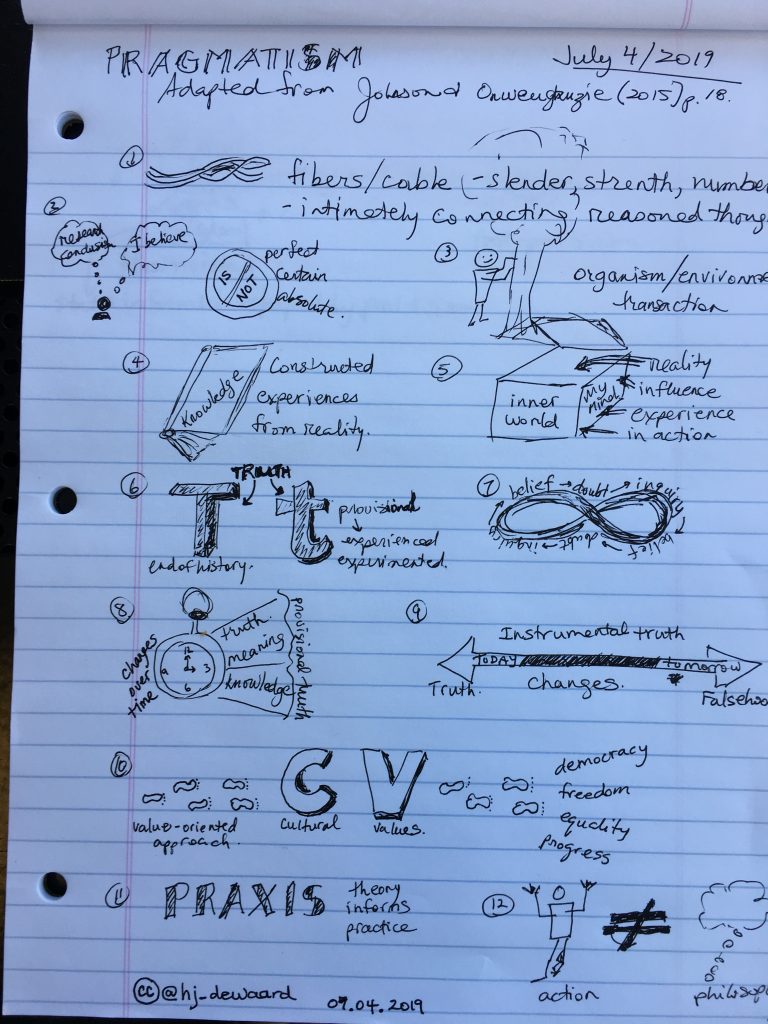Pragmatism
My inner pragmatist has come to light. For the DS2 course there have been readings and class discussions about how epistemologies, ontologies, logics, and axiology impact research. From Burke Johnson & Onwuegbuzie (20o4) I’ve found some interesting connections that resonate for me. One of my classmates mentioned in discussion that system and school leaders tend toward pragmatism. The key elements I’ve pulled from the chart found on page 18 focus on:
- rejecting traditional dualism by finding middle ground
- recognizing many worlds and many realities
- experience and actions lead to knowledge, which is constructed through organism-environment transactions
- eclecticism and pluralism are endorsed
- inquiry by humans is useful and valid, through observation and experiences
- knowledge is tentative, truth may be falsified tomorrow
- cultural values underpin pragmatism, with democracy, freedom, equality and progress influencing theory and practice
- adaptations to new situations lead to new truths
I’ve captured some key points in a rough sketchnote adapted from this writing:

References: Burke Johnson, R., & Onwuegbuzie, A. J. (2004). Mixed methods research: A research paradigm whose time has come. Educational Researcher, 33(7), 14-26.
